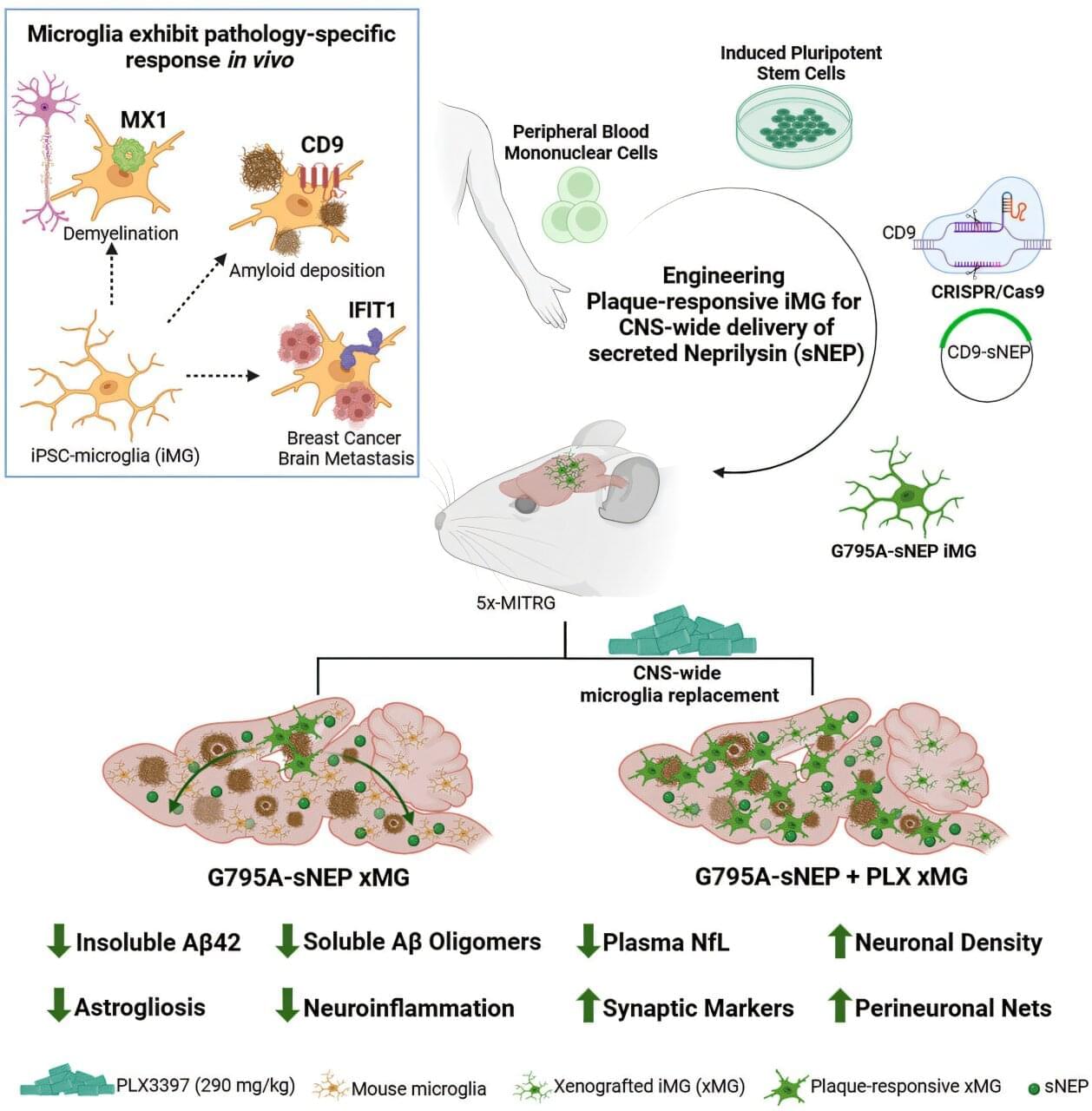A new way to deliver disease-fighting proteins throughout the brain may improve the treatment of Alzheimer’s disease and other neurological disorders, according to University of California, Irvine scientists. By engineering human immune cells called microglia, the researchers have created living cellular “couriers” capable of responding to brain pathology and releasing therapeutic agents exactly where needed.
The study, published in Cell Stem Cell, demonstrates for the first time that microglia derived from induced pluripotent stem cells can be genetically programmed to detect disease-specific brain changes—like amyloid plaques in Alzheimer’s disease—and then release enzymes that help break down those toxic proteins. As a result, the cells were able to reduce inflammation, preserve neurons and synaptic connections, and reverse multiple other hallmarks of neurodegeneration in mice.
For patients and families grappling with Alzheimer’s and related diseases, the findings offer a hopeful glimpse at a future in which microglial-based cell therapies could precisely and safely counteract the ravages of neurodegeneration.
